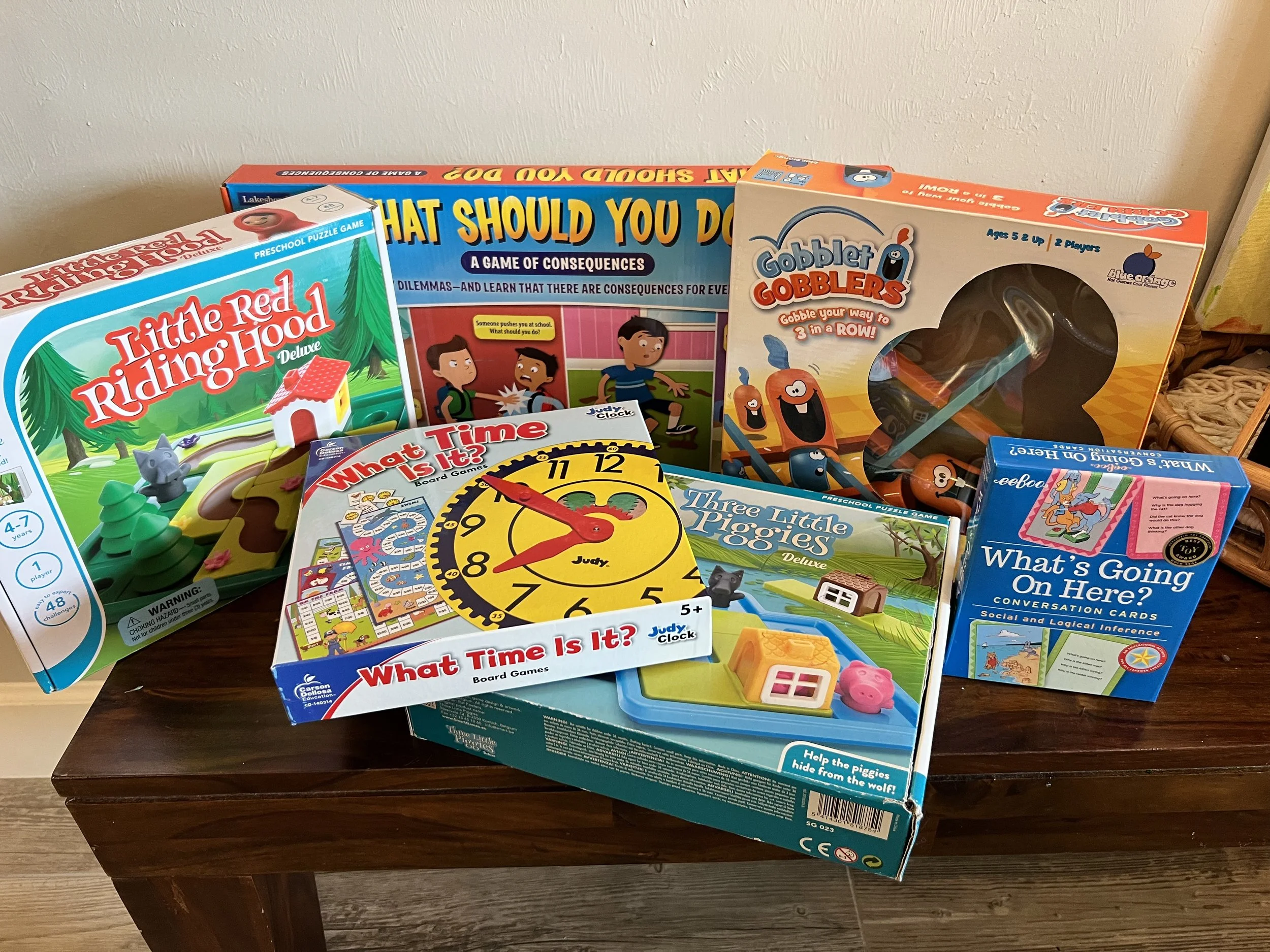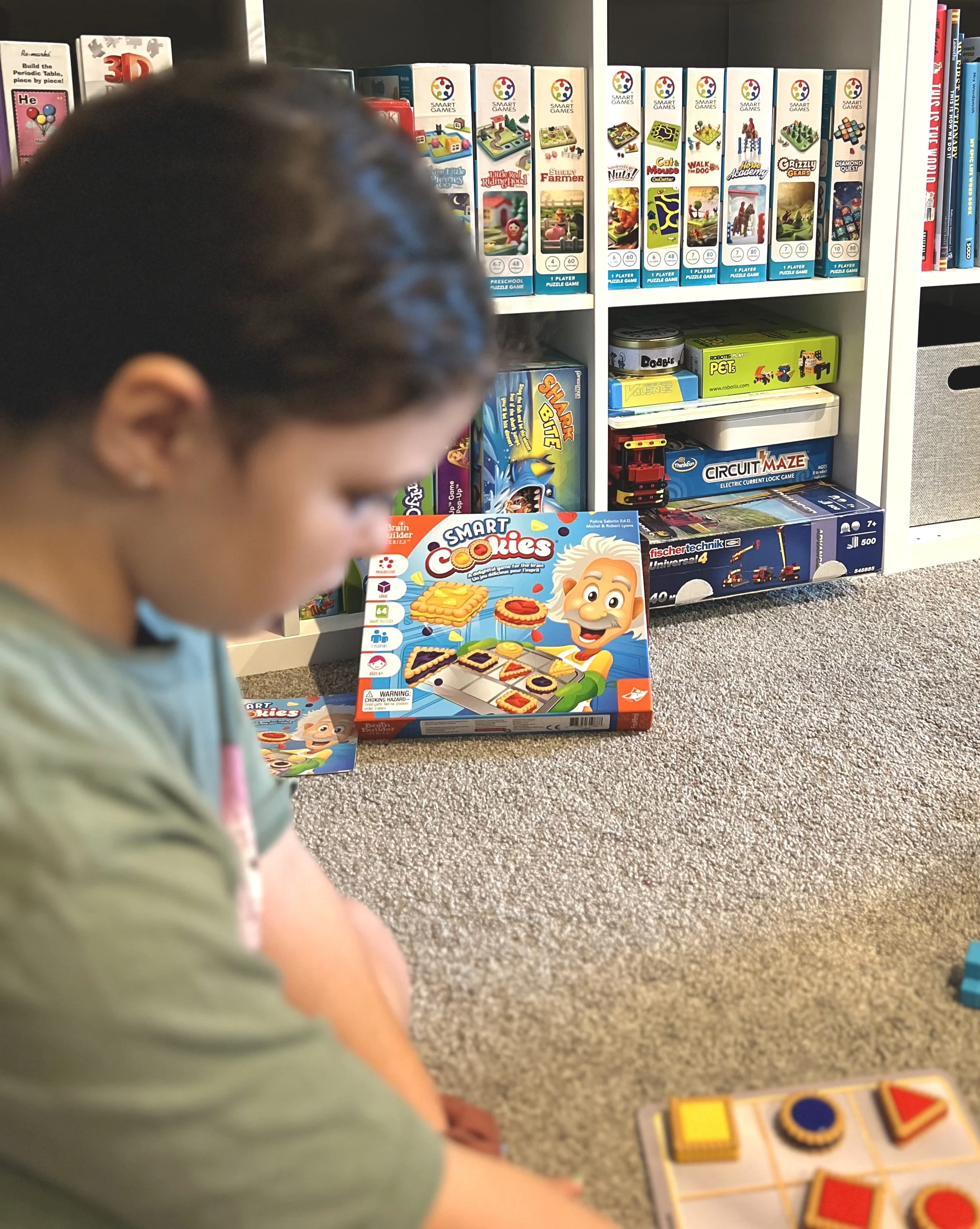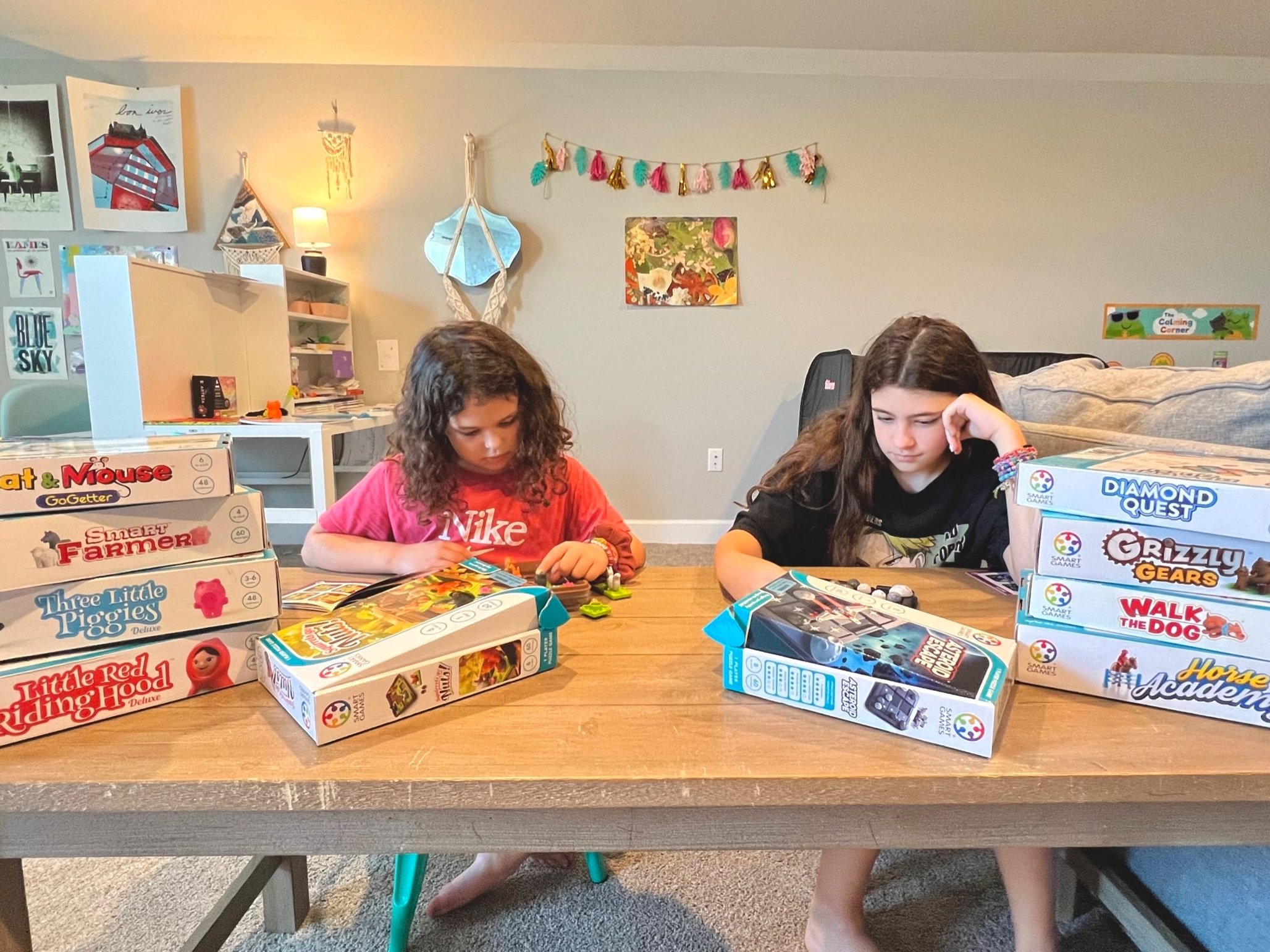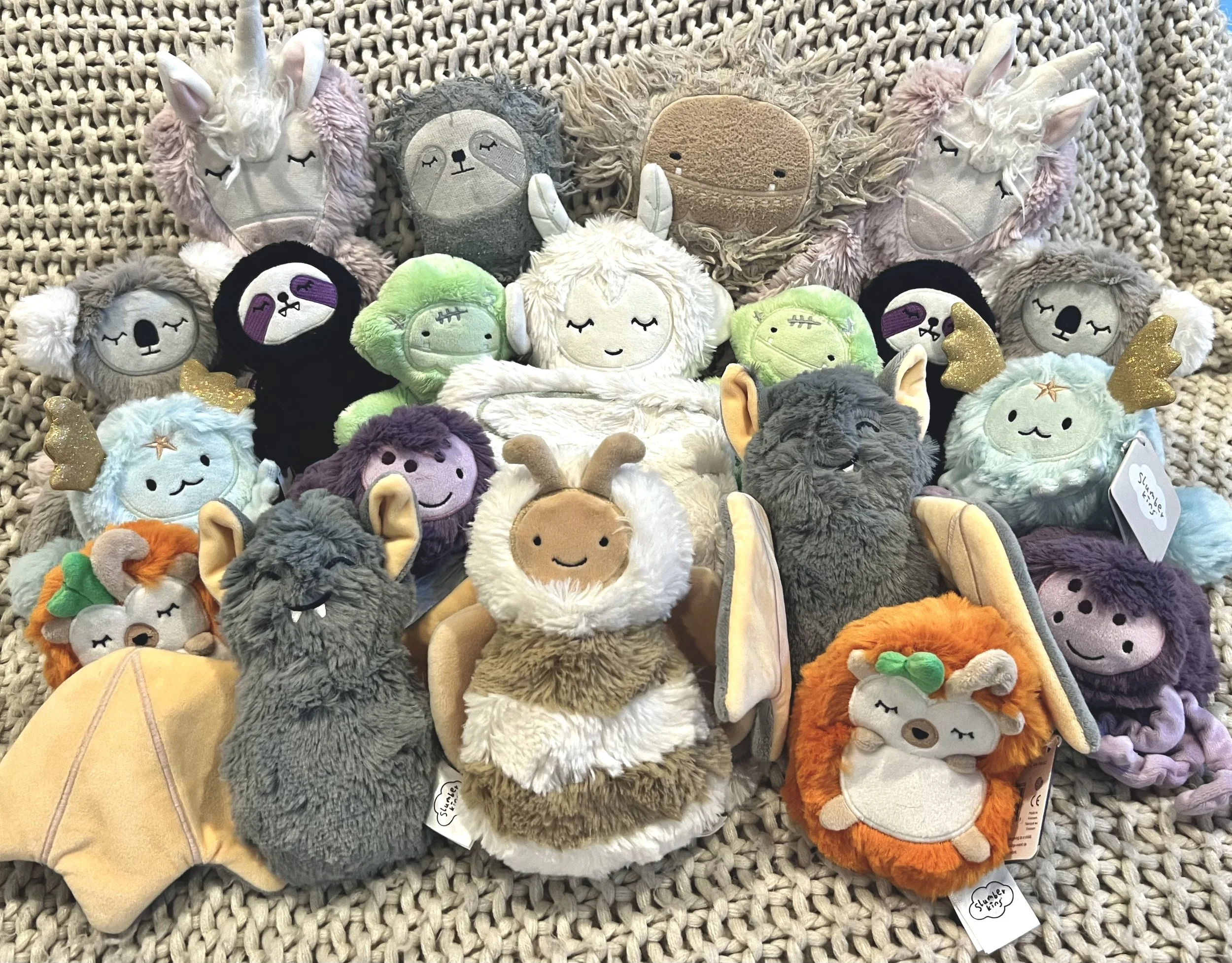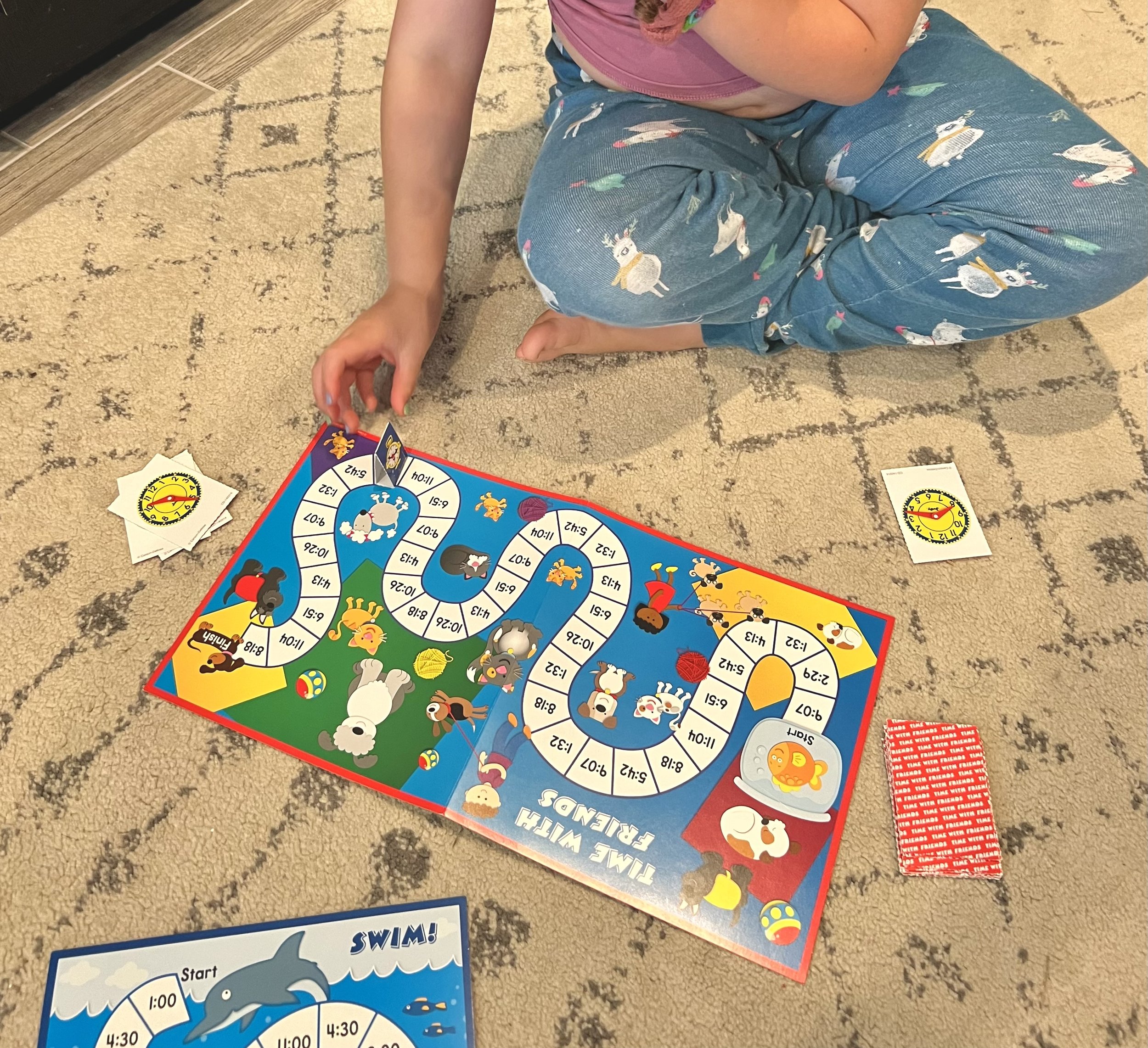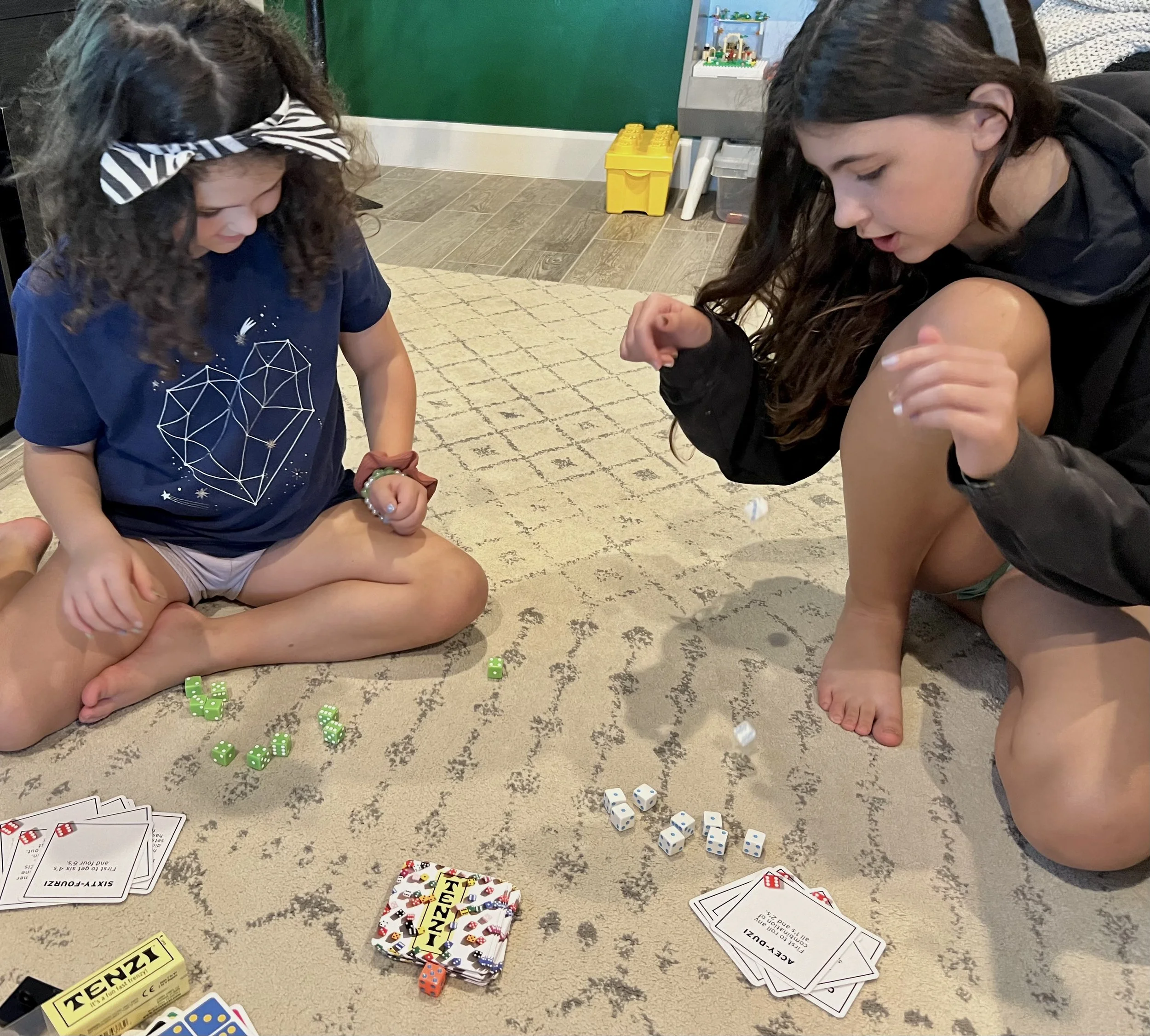Gameapalooza: Learning through play with games
When it comes to homeschool it can be easy to get stuck in a loop and find yourself doing the same thing each day for the sake of sanity and your overarching schedule. On the flip side of that, burnout is very real and can hit you hard if you aren’t caring for yourself regularly. But, this isn’t a post about self-care or how to prevent mom-burnout, this post is about having fun while homeschooling!
When I began my homeschool journey, I was caught up in the ‘suppose to’s of it all. After talking, connecting with real mom homeschoolers, I realized that school work won’t occupy a ton of our daily time, you can have fun while learning, and these kiddos are going to need some additional entertainment! As a mom and a homeschooler, it is way too easy to play the comparison game with other homeschoolers near or far as well as traditional schools. The most important part of being the one who spearheads the whole endeavor is to remember that those other people or teachers aren’t you, they aren’t your kiddos, and only you can know what they need and how best to give it to them.
Homeschool gives you the freedom and the ability to play with your kiddos and figure out how they best learn. There are different online quizzes to find out how your child best learns, like this one. These can help you quite a bit when you figure out how to best meet them in a learning environment. For example, my oldest daughter needs to see every step written out visually, whereas my youngest daughter is a great auditory learner and can quickly pick up on new concepts.
The second important piece to homeschool is having fun and breaking up your days. This was initially hard for me being a Type A personality—I like my control. You can do this in a lot of ways like taking educational field trips (this was how I introduced fun into our homeschool routine), doing school in new places, but one of our most favorites is games! Learning Through Play has done the research to show children pick up new concepts much faster and they stick longer than traditional teaching methods usually would. In our home, we try to take one Gameschooling day a week for a much needed break, while still learning just under the guise of fun. As moms, our superpower is being sneaky, am I right?
I have found that when I approach things from a fun and learning perspective rather than school perspective, the kiddos really seem to be more engaged and open to learning something new. Even when we are having a rough day and everyone just seems to be butting heads, it can be more beneficial to step back and take a break, rather than being bull-headed and pushing on for the sake of the schedule. Another benefit to playing with your children in a fun, engaging way is that it helps foster a deeper connection between you and your kiddo.
Now, not all games are created equal. Yes, of course, we have our typical family game night games that teach teamwork and taking turns, like Pictionary, Candy Land, and Don’t Break the Ice, but there is also a variety of learning games that help to teach different concepts—problem solving, deductive reasoning, cognitive learning, educational. Next, we’ll look at a few different types of games and some of my family’s favorites.
Single Player Games
I absolutely love, love Smart Games! They really specialize in single player, problem solving games. I have used these since my girls started homeschool at first grade and preschool. These games are great for those families who have more than one kiddo too, because you can work with one child while the other works on deductive reasoning and problem solving skills. Smart Games offers a wide variety of game options that span all ages and everyone in our home has loved playing with them—even the adults!
Cognitive Games
In our home specifically, we needed extra help this area. We use Bananagrams often for fun, silly, learning play. We also enjoyed games that illustrate cause and effect like What Should You Do? Another option that we liked was What’s Going On Here? These are more like conversation cards that we worked into our bedtime routine. They’re provide a low stress way to talk about what may be appropriate and inappropriate ways to respond in a variety of situations.
Social-Emotional Games
Social-emotional learning games can be simple and fun ways to teach kiddos appropriate responses. They also to help children to label emotions, as well as how to best navigate those often big feeling emotions. One company specifically that I have loved since its inception is Slumberkins. The founders are teacher and psychologists who really have made huge strides to help parent and kiddos alike navigate social-emotional learning and made it approachable. Not only do their characters each correspond to an emotion, Slumberkins also have other tools you can utilize such as a multitude of books, a Feelings Adventure board game, and resources for teachers and caregivers alike.
Educational Games
There are a lot of area specific games out there for anything you may need—STEM, math, language, spelling, and more. I’ll go over some that we really enjoy here, but by no means is this all of them or even the best ones! A game that has grown with us over time, and we actually purchased from another homeschooling family, is Very Silly Sentences. When both of my girls were younger we played with the smaller option the game has, as they grew and learned more in Language, we expanded to play with the full card. I love investing in games that allow you to play multiple ways or at least manipulate the game to offer more options.
Tenzi is a great example of this! This is a game of dice where you can play any way you like. You can create patterns, math facts, speed play, etc. There are many game options for science also. A friend uses an anatomy apron to start kiddos from a young age learning parts of their body and where things live inside our bodies. We recently purchased a game that helps you with chemical compounds and elements found on the periodic table. While it may be a bit premature for my girls, I feel introducing these ideas early helps them feel comfortable with new concepts when they come up in their school work.
Learning Resources is another great company that offers a wide range of fun, engaging learning games for kiddos starting from when they are a toddler. The earlier that learning is fun, the more the kiddos seems to really take an active role in their education. Learning Resources also offers a great variety of activities for those kiddos who have sensory needs. We utilized several of their items when it came to my youngest’s sensory needs.
When you start integrating learning through playing you will be amazed at how fast they pick up on facts and can recall them easier because they have a tangible memory to fall back on. Learning through play introduces new things in a way that is fun, approachable, with low expectations. This is so important when teaching, I feel, because it creates a life-long love of learning by having the kiddos invested in the outcome. If you can find a game that teaches a challenging concept to your kiddo with ease, it’s worth everything!
I encourage you to explore the world of educational games and you’ll be surprised by all the options there are. I hope you look at games and homeschool differently, maybe even be inspired to create your own Gameschool day or family game night! Or even something so small as playing mini learning games between assignments, for those who are working to bring more relaxation into your learning environment. Remember to remind yourself in the moment of what’s important. Plus, seeing the joy and laughter they express while learning through play truly makes the occasional stress from fun worth it all!
